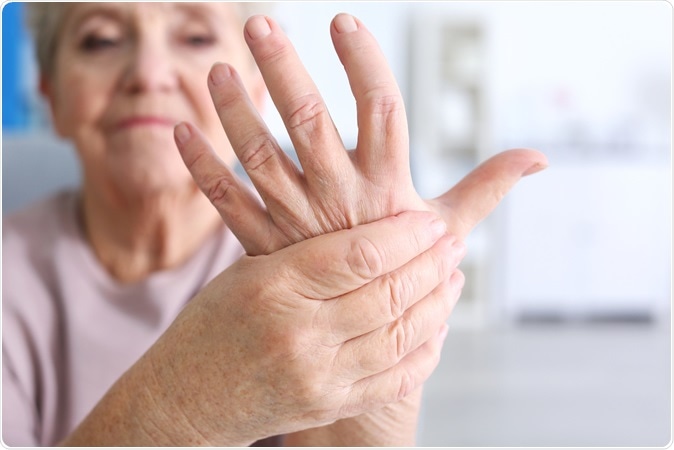A new study has shown that pain relief creams are no better than dummy or placebo creams when it comes to relieving pain. The study titled, “Compounded Topical Pain Creams to Treat Localized Chronic Pain: A Randomized Controlled Trial,” was published in the latest issue of the journal Annals of Internal Medicine.

Image Credit: Africa Studio / Shutterstock
These pain relief creams are prescribed to be applied locally over localized pain sites for pain relief explain the researchers. They come at a relatively high cost but are not better than placebo creams they add. The experts add that there have been concerns regarding the safety of pain relievers and also side effects and abuse potential of opioid pain relievers. This has raised the prescriptions for these compounded pain relievers with no real data regarding their superior efficacy or safety. They have appealed to prescribers as well as users due to the perception of their low rates of side effects due to topical use.
This study is a randomized controlled trial from the researchers at the Walter Reed National Military Medical Center. The team included 399 patients with either localized pain that was diagnosed to be due to nerve damage or neuropathic (total of 133 patients) or nociceptive pain or pain due to tissue injury (not nerves) (total of 133 patients) or mixed type of pain (133 patients). The groups were further divided into two and one half was given pain cream compounded specifically for their type of pain or a placebo or dummy cream. The drugs used in the compounded creams were FDA approved and routinely used for pain relief. This included agents such as non-steroidal anti-inflammatory drugs (NSAIDs) and muscle relaxants (such as “ketoprofen, baclofen, cyclobenzaprine, and lidocaine”) for nociceptive pain and anticonvulsants and others (“ketamine, gabapentin, clonidine, and lidocaine”) for nerve pain. For the mixed pain treatment group compounds with “ketamine, gabapentin, diclofenac, baclofen, cyclobenzaprine, and lidocaine” were used.
Pain sensation was evaluated, a month after prescription of the creams. Results showed that there was no significant difference in improvement in pain symptoms with use of compounded pain creams compared to placebo creams. Around 28 percent participants in the placebo group and 36 percent participants in the pain cream group reported pain alleviation. This difference was not deemed to be significant enough for use of pain creams, write the researchers. Further, the compounded pain creams were most expensive compared to other creams, the authors add. Small benefits seen with these creams, they add, are due to the effects on the peripheral nervous system and not due to effects on the central nervous system.
Senior study author Dr. Steven Cohen, a pain researcher at Walter Reed National Military Medical Center in Bethesda, Maryland, and Johns Hopkins Medicine in Baltimore in a statement said, “We know from other studies that some of the agents (lidocaine, non-steroidal anti-inflammatory drugs) may be effective for certain types of acute and chronic pain, so it is surprising that the difference here did not reach statistical significance in any of the pain types...This matters because compounded pain creams are much more expensive than prescribed (lidocaine, diclofenac) or over-the-counter (capsaicin) pain creams, but they didn't provide meaningful benefit compared to placebo cream.” Authors conclude that these compounded pain relieving creams should not be prescribed routinely for treatment of pain.
The study was funded and supported by the Centers for Rehabilitation Sciences Research, Defense Health Agency, U.S. Department of Defense.